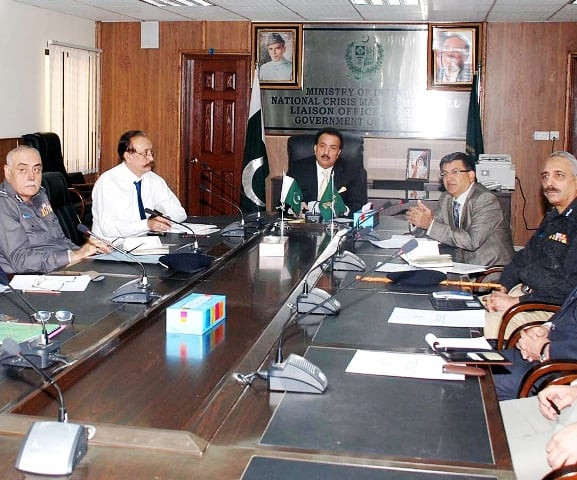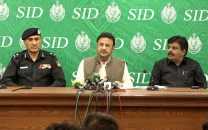Seeking an end to Karachi’s killings
Everybody privately declares the killers are connected with political parties ruling Karachi but no public disclosures

Seeking an end to Karachi’s killings
Nothing came out but more disagreement and one can see the difficulties arising when a parliamentary committee is formed to go down to Karachi and compile an inquiry report about what actually is happening there. The scene on the ground meanwhile was the same: eight people were gunned down on August 2 as police and Rangers failed to stem the wave of mayhem in several localities. No one ethnic community could claim immunity because all suffered violence and displacement. If you accuse the MQM of driving the Pashtuns out of Orangi, the Muhajirs will point to their share of those killed, which remains the highest. The MQM chief has now spoken in terms of “a final siege” by asking the people of Karachi to take in one month’s supplies and be prepared for more suffering. The ANP was equally pious, appealing for a de-weaponisation drive after admitting that weapons were “the ornament of the Pashtun race”. The PPP kept boasting about how it was getting ready to swoop down on the killers after supplementing its rather ineffective Karachi police with rangers and Frontier Constabulary (FC) from neighbouring Balochistan after giving it the right to search and arrest. All three stakeholders of Karachi seemed deadlocked as usual despite the federal interior minister’s by-now empty bragging that the killers will all be hauled up and punished.
What shocks, or at the very least confuses, people are statements like the one made by the inspector general of Sindh claiming that 91 target killers were arrested by his police. But who are these killers and who has instigated them to go out and kill innocent people, who pays for their weapons and perhaps, most importantly, why aren’t they prosecuted and convicted for their crimes? Everybody privately declares that the killers are connected with the political parties ruling Karachi but no public disclosures are made and no names are named from among them. The new gimmick is that the Sindh government will give Rs5 million to anyone identifying the killers and Rs10 million for any video evidence against them. But evidence is there on all TV channels and the Sindh government does not need to make such offers.
All three parties are caught up in spiral they can no longer control. If their communities are attacked, they have to stand by the suffering citizens. Instead of getting together — at least the Pashtun and Muhajir leaders can be civil to one another — they prefer to let the hooligans take over the scene. Both sides have proved that they have the capacity to hurt but will not draw the obvious conclusion from this capacity. The PPP, with its history of acrimony against the MQM, tends to look at the ANP as its make-weight in an a city otherwise dominated by the MQM. Somewhere in the background of the leaders who look civilised must be lesser leaders who interface with those involved in the violence. That is the phenomenon the stakeholders have to look at carefully and remove through mutual agreement. Beirut’s three warring communities indulged in slaughter for 15 years but that situation was complicated by interventions from Israel and Syria. Karachi has been on the boil and off it for the last 15 years; and all the three communities are suffering while politicians lack the guts to save their already impoverished followers from being brutalised. A bout of martial law with its own courts that will hang the killers is, alas, ruled out because the military is engaged with al Qaeda and Taliban elsewhere, and has to man the eastern border.
Published in The Express Tribune, August 4th, 2011.



















COMMENTS
Comments are moderated and generally will be posted if they are on-topic and not abusive.
For more information, please see our Comments FAQ